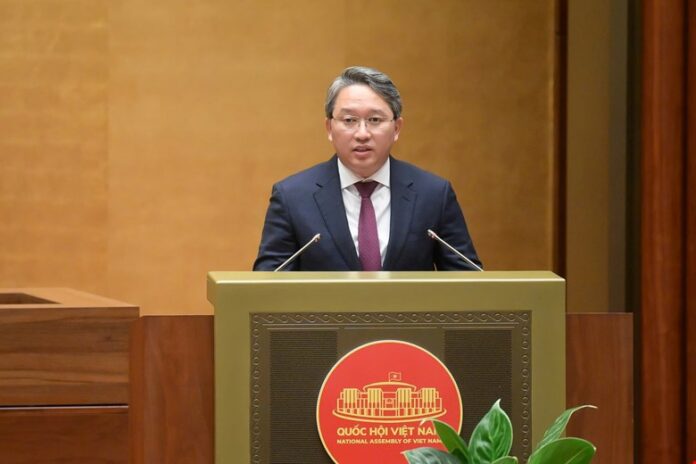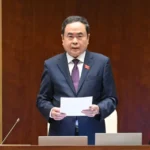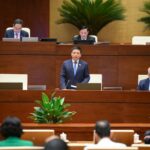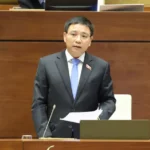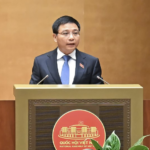On the afternoon of June 24, with the majority of attending National Assembly deputies agreeing, the National Assembly passed a resolution on special mechanisms for handling difficulties and problems arising from legal provisions.
The resolution took effect immediately and will be implemented until February 28, 2027.
Reporting on the absorption, explanation, and editing of the draft resolution before the National Assembly voted on it, Minister of Justice Nguyen Hai Ninh said that regarding the scope of adjustment, the government added an exclusion clause to the resolution: For matters concerning human rights and citizens’ fundamental rights and obligations, which, according to the Constitution, must be prescribed by law; the restriction of human rights and citizens’ rights; crimes and punishments; judicial proceedings; and the basic principles of organizational apparatus organization, the solutions to difficulties and problems prescribed in Points 2 and 3, Article 4 of this Resolution shall not be applied.
The resolution stipulates three criteria for determining difficulties and problems arising from legal provisions.
First, contradictory and overlapping provisions in the same legal document or between different legal documents;
Second, vague provisions in legal documents that are open to multiple interpretations and are unreasonable, impractical, or difficult to apply and implement;
Third, provisions in legal documents that impose heavy compliance costs, or the absence of provisions in legal documents, or the presence of provisions that limit innovation, creativity, the development of new growth drivers, the unlocking of resources, the promotion of economic growth, and international integration.
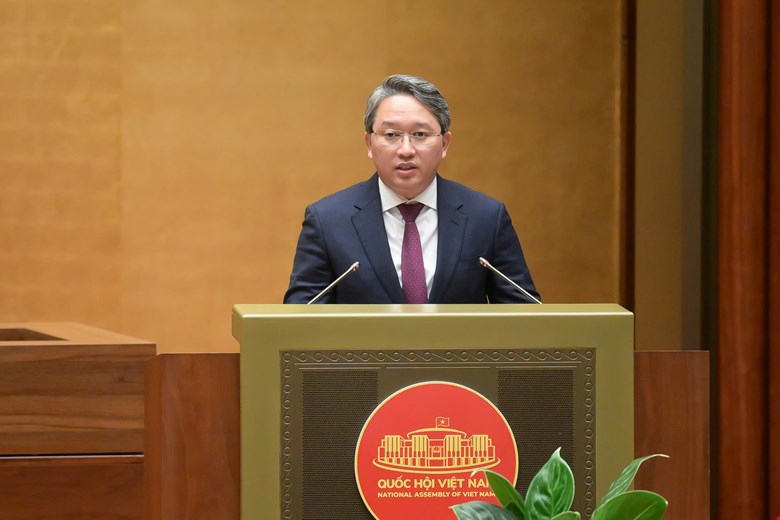
The resolution stipulates five principles for handling difficulties and problems arising from legal provisions, providing guidance for the process of amending, supplementing, or promulgating legal documents to address these issues and ensure a rigorous approach.
Regarding the solutions to handle difficulties and problems arising from legal provisions, the government has edited and supplemented the provisions to specifically outline the solutions, which are applicable to all subjects and forms of legal documents, including those of local governments.
Additionally, a provision has been added to stipulate that in cases where a resolution passed by the government leads to the simultaneous need to amend or supplement laws, resolutions of the National Assembly, ordinances, or resolutions of the National Assembly Standing Committee, the opinion of the proposing agency must be sought.
The resolution also supplements a provision stating that when issuing a resolution by the government that addresses an issue not yet regulated by law or a resolution of the National Assembly, or one that has a significant impact on the economy, society, national defense, security, or foreign affairs, the opinion of the competent authority of the Party must be obtained before issuance.
Another addition is a provision requiring that when proposing the construction of a government resolution, a list of legal documents and the specific articles, points, and items to be amended or supplemented must be provided to ensure consistency and synchronization.
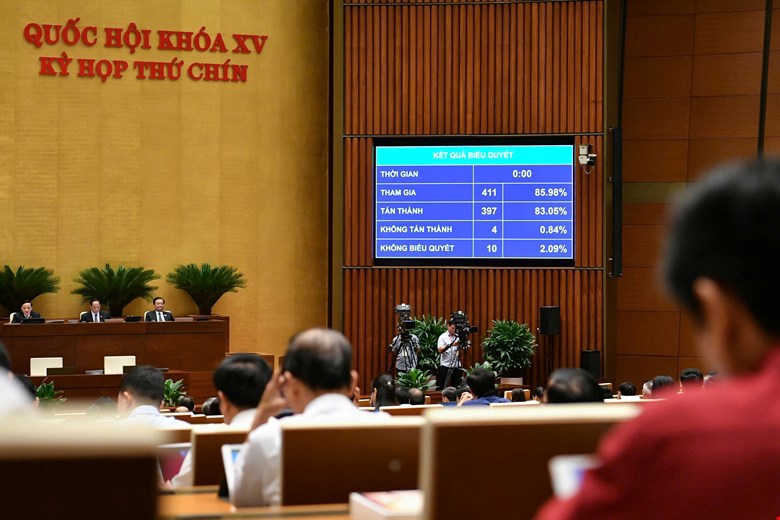
According to the resolution, during the period when laws and resolutions of the National Assembly that are not proposed by the government have not been amended or supplemented according to the prescribed solutions, the National Assembly Standing Committee is authorized to issue a resolution to adjust the provisions of those laws and resolutions and report to the National Assembly at its nearest session.
The resolution passed by the National Assembly Standing Committee must clearly specify the time of its expiration, which must be before March 1, 2027, as well as the list of laws, resolutions of the National Assembly, and the specific articles, points, and items proposed for amendment or supplementation to ensure consistency and synchronization.
Regarding the implementation of this resolution, it clearly states that agencies should prioritize resources for reviewing and identifying difficulties and problems, as well as for drafting, evaluating, and scrutinizing projects and drafts of legal documents to address these issues promptly, efficiently, and effectively.
The National Assembly, the National Assembly Standing Committee, the Council for Ethnic Affairs, the Committees of the National Assembly, the Delegation of National Assembly deputies, National Assembly deputies, the People’s Councils, the Boards of the People’s Councils, the delegates of the People’s Councils, and the Vietnam Fatherland Front, within the scope of their tasks and powers, shall strengthen the supervision of the implementation of this resolution.
The heads of agencies and units, individuals involved in the construction of this Resolution, and those involved in identifying and handling difficulties and problems as prescribed in this Resolution shall be considered for exclusion and exemption from liability if they have fully complied with the relevant processes and regulations and have not acted for personal gain, even if damage occurs in the performance of their tasks.
The Government and the National Assembly Standing Committee shall not authorize or devolve the issuance of legal documents to handle difficulties and problems arising from the provisions of laws, resolutions of the National Assembly, ordinances, or resolutions of the National Assembly Standing Committee.
“Speaker of the House: Addressing Issues that Matter to Voters”
At the upcoming 10th National Assembly session (October 2025), the National Assembly will consider reports from various agencies on their implementation of the National Assembly’s resolutions regarding questioning and specialized supervision. This is a form of “supervision review,” demonstrating the National Assembly’s commitment to thoroughly monitoring and supervising the matters that have been supervised and questioned.
A New Era of Social Housing: From Pilot to Breakthrough
The legislature has just passed Resolution 201/2025, ushering in a new era of specialized policies for social housing development over the next five years. This landmark decision is expected to address the housing needs of low-income earners and invigorate investment in affordable housing, a segment that has long been stagnant due to legal hurdles.
Unlocking the Bottleneck: A Ministerial Resolution
“The construction and submission of a resolution regarding the mechanism for addressing difficulties and obstacles arising from legal stipulations are of utmost importance. Minister of Justice, Nguyen Hai Ninh, emphasized the urgency of this matter to promptly eliminate bottlenecks that hinder and impede development.”
“Refining the Legal Framework for Sole Proprietorships: Encouraging Household Businesses to Embrace the Benefits of Incorporation.”
“The President of the National Assembly has requested that the Minister of Finance, the Government, and related ministries and branches propose amendments to the Law on Supporting Small and Medium-sized Enterprises. They are also tasked with reviewing and completing the legal framework for business registration, encouraging household businesses to transform into enterprises, and providing specific guidance on abolishing the lump-sum tax payment for household businesses.”
Today, the National Assembly Questions Finance Minister Nguyen Van Thang.
On Thursday, June 19, the National Assembly will hold a question-and-answer session with members of the Government. The questions directed at Finance Minister Nguyen Van Thang will cover a range of important economic and social issues, including strategies for revitalizing traditional growth drivers and fostering new ones.

























